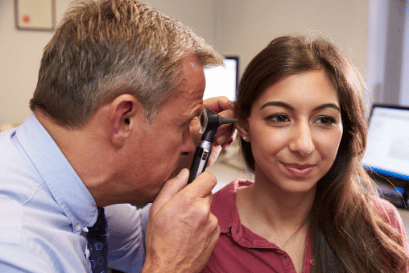Balance is an extremely important part of your everyday life, even if you don’t notice it. If you have a vestibular disorder, however, it can make regular tasks much more difficult. From getting out of bed to navigating a room to seeing clearly, vestibular disorders such as benign paroxysmal positional vertigo (BPPV) can take a toll. Sometimes, these symptoms can even cause secondary problems like nausea, difficulty concentrating, and chronic fatigue. There are a lot of treatment methods for vestibular disorders that vary in effectiveness, but vestibular rehabilitation is one that can help you learn to adjust.
At NYHD, we understand that vestibular disorders not only affect your quality of life but can put you at risk of injury or falls. We’ve created a multi-disciplinary, collaborative approach to assessing and managing balance disorders. That’s why we partner with you, your physician, and vestibular physical therapists to create a comprehensive assessment and treatment plan.
What is Vestibular Rehabilitation?
The goal of vestibular rehabilitation therapy (VRT) is a type of physical therapy to help accelerate your body’s ability to compensate for a vestibular dysfunction. Normally, this occurs on its own but at a much slower pace. With some targeted therapies, vestibular rehabilitation can tap into the ability of the central nervous system to relearn and improve vestibular function using other senses, helping maintain balance, eye movements, and postural control. It usually includes some vestibular rehabilitation exercises to help reduce imbalance or vertigo and the chance of falls or injuries through things like habituation exercises, gaze stability exercises, and balance training.
The Importance of Vestibular Rehabilitation at NYHD
NYHD (New York Hearing Doctors) | Institute for Hearing & Balance comprises empathetic and experienced Doctors of Audiology. The audiologists at NYHD deal with everything from performing comprehensive diagnostics to assisting their patients to choose…
Vestibulopathy
When the vestibular organs of the inner ear change or lose function, strange symptoms can surface in the everyday lives of those affected by this rare but troubling disorder. These dizziness symptoms like include random bouts of vertigo, sudden motion intolerance, and a head-spinning sensation. Vestibulopathy has many causes but is most often linked to illness, injury, and infections.
This condition makes simple, everyday tasks much more difficult, if not dangerous, which is why people who suffer from these or other difficult-to-diagnose symptoms should seek treatment from a qualified audiologist. Vestibular rehabilitation therapy under the care of the doctors at NYHD can help alleviate these symptoms to help make your life easier.
Why is Vestibular Rehabilitation Important?
Vestibular therapy can help accelerate the rate at which you can return to your regular lifestyle. This means it can help to reduce the symptoms that prevent you from living your life the way you want. Additionally, vestibular rehabilitation outcomes focus on full-body wellness and overall health which can help to reduce symptoms, pain, and other medical conditions that might be contributing to a vestibular disorder. Vestibular rehabilitation is usually performed by expert therapists who can target your unique deficiencies and create the right treatment plan for you.
Vestibular Rehabilitation FAQs
How do I know if I have a vestibular disorder?
Can stress cause vestibular disorders?
Can stress make BPPV worse?
Do vestibular disorders go away?
Do vestibular rehabilitation exercises work?
Does vestibular therapy make you dizzy?
Can anxiety cause vestibular problems?
Can physical therapy for vertigo make it worse?
Can the vestibular nerve repair itself?
Can I drive with a vestibular disorder?
What are some of the exercises done in vestibular rehabilitation?
What issues can vestibular rehabilitation address?
Who performs vestibular rehabilitation?
How long should I go to vestibular rehabilitation?
What Can I Expect at NYHD?
At NYHD, we can perform a comprehensive balance assessment to get an accurate baseline and diagnosis for your symptoms. There can be many different causes of vestibular disorders, so our Doctors of Audiology can work with your healthcare team to find the right treatment options for you. If we believe you might benefit from vestibular rehabilitation, we can refer you to our network of expert vestibular physical therapists. We can also recommend the right at-home steps to help supplement your vestibular exercises like yoga or tai chi to strengthen your body and increase mobility. As always, our Doctors of Audiology are here to perform hearing and balance assessments so you can get the right treatment you need.
Schedule a Consultation
Your first step in finding an effective treatment for your dizziness and balance problems is a quick and easy balance assessment with our expert Doctors of Audiology. From there, we can look at your possible causes and recommend the right vestibular rehabilitation program for you. To schedule a consultation with our Doctors of Audiology, contact our New York City office by calling (212) 784-6125 or filling out our online form.






